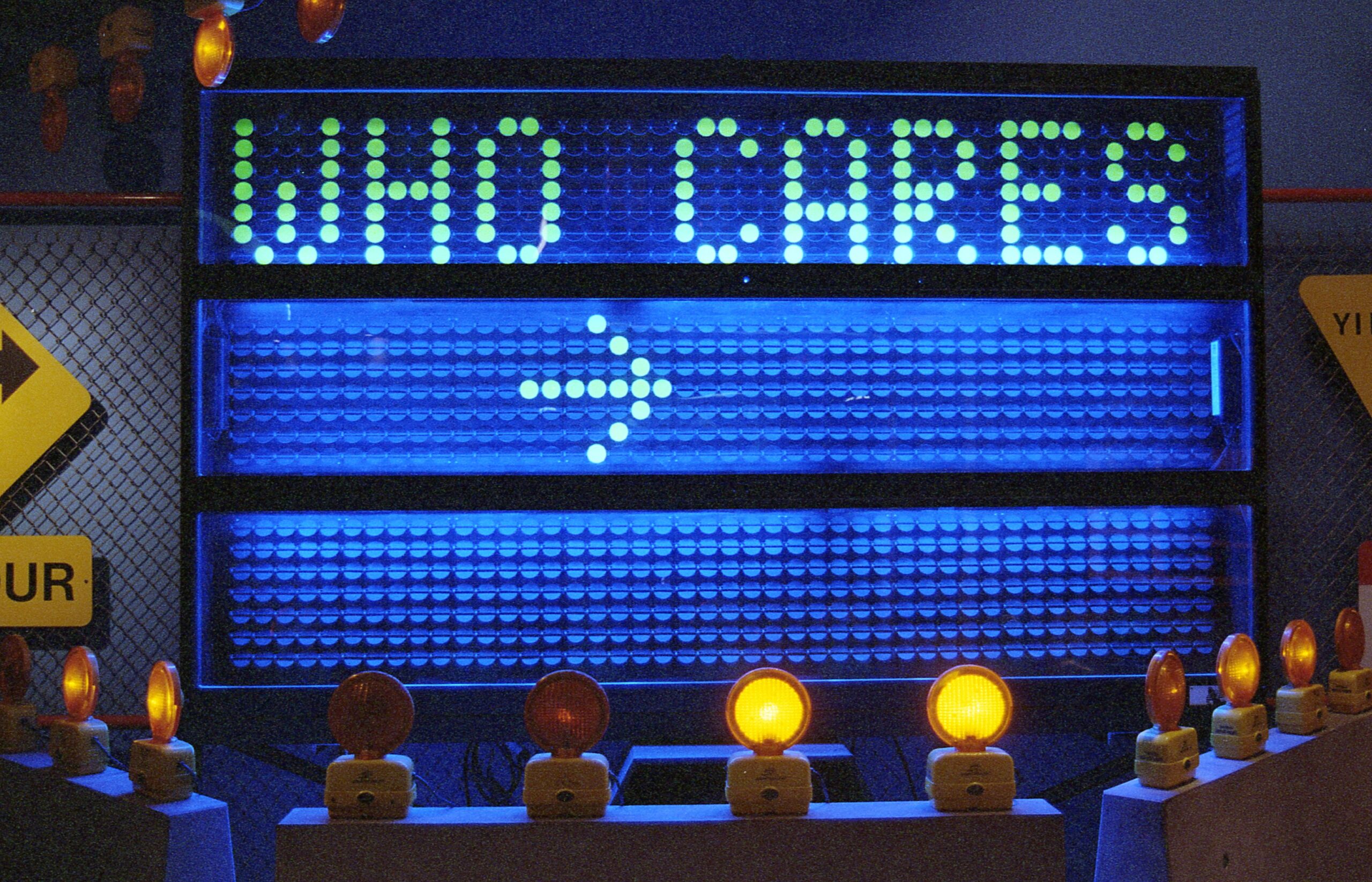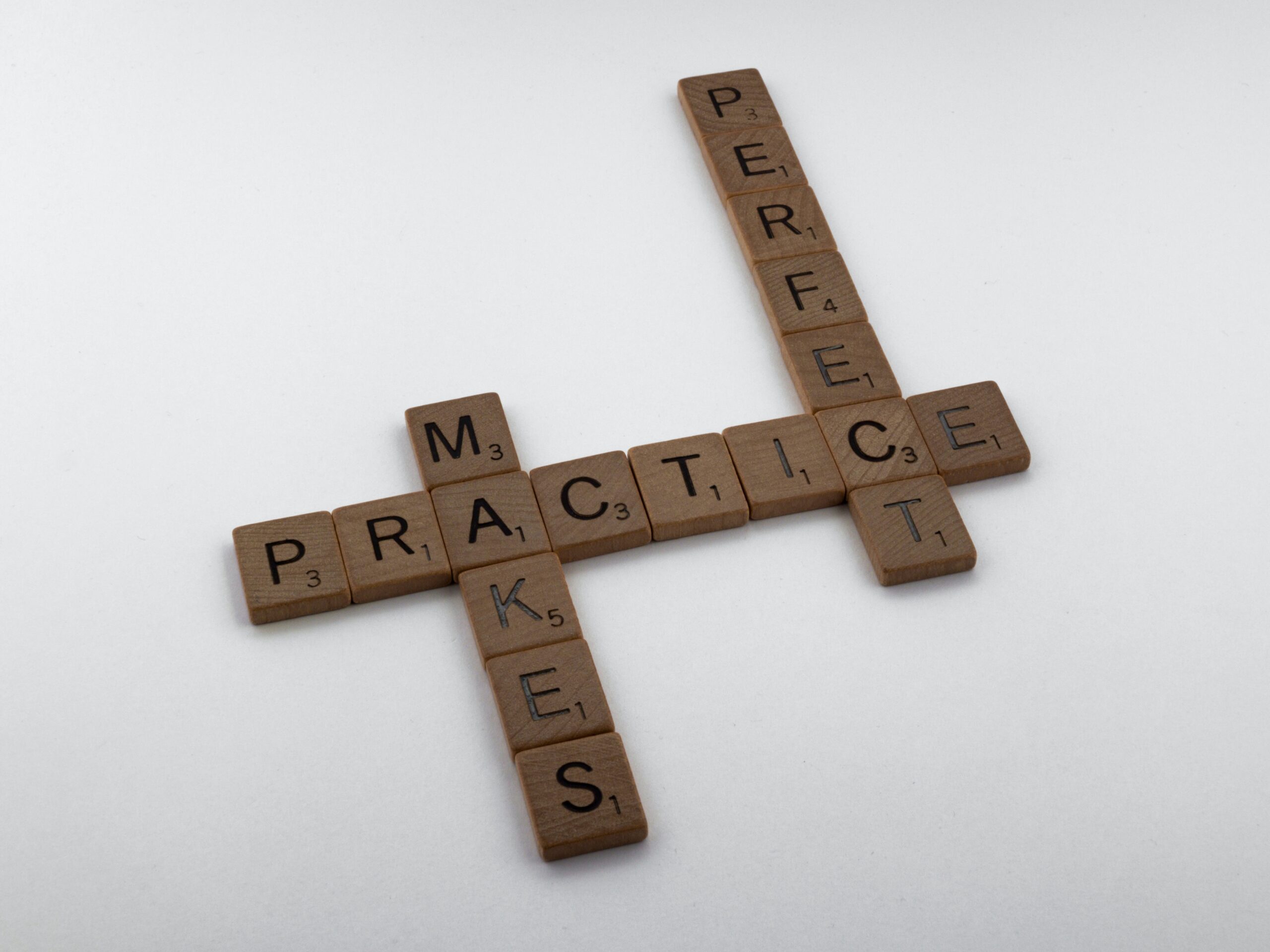
Career Coaching, Change, Professional Development
Are you at a Career Turning Point? Ignore it at your peril.
Lately I’ve been feeling restless, which is usually a sign that something deeper is going on if I take the time to look under the surface. What’s started to emerge upon deeper reflection is that I’m entering a new cycle of change as it relates to my career. I find this interesting because the way we tend to view career is linear. “I need to figure out what my calling is and then I’ll be happy.” We frame the dilemma as an if, then statement and then are surprised when the old formula no longer works. Things start to feel stale, but we’re not sure why. We’re filled with an emptiness, a longing we can’t quite understand. We distract ourselves with more work, social activities, relationships, we find other ways to numb. But the feeling is still there. The answer to this dilemma lies in the fact that we change and grow and evolve. And because we do, we can’t stay in one static place. Any successful career skillfully navigates several turning points. These are sometimes referred to as an existential crisis, or a career crisis, or as we say in the South, a come to Jesus moment. But the bottom line is that transition is normal and we need to learn to lean into it rather than push it away. If you’re wondering what these turning points are once you’ve entered the working world, I can summarize them. Ignore one at your peril, it will find a way of re-emerging louder and more painfully than ever before. The main turning points of working life: Age 30 Assessment (age 28-33) No matter what direction we’ve launched ourselves in post college, we tend to do some reflection and assessment around age 30. What has been working about the course I chose? What hasn’t? What do I want to achieve in the next 10 years? How will I do this? What values do I need to pay attention to? What interests? What are my family goals? How am I balancing work and family? What would be most meaningful to me as this point in my career? What could I add to my life to make it more interesting and meaningful? Midlife Transition (age 38-45) This transition can be one of the most important in a person’s life. And if we ignore it and bury the feelings that often accompany this transition point, it can be a disaster. The proverbial mid-life crisis will often ensue. Divorces are common at this stage. Many people, confronted with the feelings of stress, anxiety and depression that often accompany this stage, choose avoidance. But these feelings don’t really go away, they just go underground. The True self, our soul essence, our spirit – whatever term you chose to use, still needs expression. How do I feel about my family? How do I feel about work? What changes would I like to make to achieve a better balance? How connected do I feel to others? What excites me
May 31, 2024
|
4.8 min read

Career Coaching, Leadership, Relationships
Simple strategies to make a recruiter your best friend
This week I attended an incredible talk from recruiter Cheryl Bedard, who shared her thoughts on engaging properly with recruiters. One of the things that struck me as particularly important is we often only think about contacting a recruiter when we are in-between jobs or thinking of making a move. This is a very shortsighted strategy – active management of your career includes cultivating your connections with recruiters over time, along with the rest of your network, so that you have the support you need when you need it. In addition to this top tip, here are some other thoughts on how to make a recruiter your best friend: Be approachable and respond to emails and calls This one struck me as a surprise, as doesn’t everyone have a current email on their LinkedIn account? Evidently not. Make sure your profile is current and correct and use an email that you actually monitor and will respond to. If you’re actively looking for a job, answer the phone. This one may take a bit of a mind shift change as we’re programmed these days to let everything go straight to voicemail. But if I’m a busy recruiter, instead of leaving a message, I may just hang up and call the next candidate on my list. And Cheryl pointed out a very interesting piece of info – that coveted call from the recruiter might be tagged as spam on your phone. The only way to know for sure is to take the call and see. You can always hang up if it’s spam. Lastly, listen to your voicemails and make sure your mailbox is not full, with an aim to return messages within 24 hours. You should call them back and not text and definitely leave a voicemail if they don’t answer. Know what you want and why I often speak about this ad nauseam with career coaching clients. If there are 5 similar resumes, why would the company pick you? You need to have an answer to this question. And just in case you were wondering, “I’m willing to do anything” is not a good response. Cheryl’s perspective echoed mine, that the talent market does not respond well to generalists. You need to be a specialist in something, clearly understand the value you bring and be able to articulate it confidently. To that point there are 5 ways to speak to value – increased revenue, increased profitability, decreased cost, avoided cost, saved time. Think about the question – “What do you do to make your bosses life easier?” if you’re struggling to come up with an answer to this one. And even if during the interview process they don’t ask the question, “Why should we hire you?” you need to close with this as part of your summary and make sure they know why they should hire you. Share, Share and Share A brilliant way to cultivate relationships with recruiters is to be a source of information for them and share
November 11, 2023
|
4.1 min read

Career Coaching, Leadership, Life Direction and Purpose
You Need to Answer this Career Question Confidently
“So we have a new Chief Revenue Officer, and he set up a meeting to get to know me and share some ideas for where he sees the direction of Marketing. And then he asked me a question – and I’m not sure if I answered it right.” “What was the question?” “He asked me where do I see my career going. And I didn’t know what to say and I told him I’m happy with where I’m at.” Heed the career warning of the Cheshire cat I smiled. It reminds me of something the Cheshire cat said in the story of Alice in Wonderland. Alice is wandering through the wilderness and comes to a fork in the road where she meets the Cheshire cat. The cat asks Alice where she’s going and Alice responds that she doesn’t know. To which the cat brilliantly responds – “If you don’t know where you’re going, any road will take you there.” I also smiled because I hear this all the time, especially from women leaders. Like Alice, we often don’t have a good answer to this very important question. We even misconstrue this question. We think it’s a test of loyalty – are they trying to figure out if I’m wanting to leave the organization? Or a test of arrogance – If I say I want their job eventually will they think I’m all high and mighty? Will they get threated by my ambitions? I should just be happy with where I’m at – right? Yes and no. You may be perfectly happy with where you are in the organization now, and yet, it’s important you have a sense for where you want your career to go in the longer term. These aren’t mutually exclusive. Thinking about the trajectory of your career is a both and, not an either or. Being proactive about your career isn’t being pompous “But I don’t want to be CRO. The thought of it scares me.” She went on to say. But here’s the point. The thought of it might scare you now, but what about in 5 years? It’s one thing to do your due diligence on career planning and then say, this is the career path I think will be best for me, and here is a considered reason why based on research and sound analysis. I like being close to the impact, I enjoy the execution and tactics more than the strategy and see myself more in a marketing operations role rather than a CRO role. Fair enough. But more often than not, we exclude things from our path because they seem too big or because of a fear of the unknown. Or we worry about being perceived as overly ambitious and don’t want to rock the boat. Take active management of your career Taking an active role in the management of your career implies just that. I’m thinking about it, I’m working to create goals for the short term, the mid-term, and the
November 3, 2023
|
4.6 min read

Career Coaching, Mindfulness, Motivation, Well Being
Is the Trick in Life Not to Care? Kind of…
We tend to focus a lot on outcomes in our society. Outcomes are how we evaluate success. That project didn’t achieve the stated outcome, so we brand it as a failure. The business is no longer a going concern, so it’s a bust. Maybe we don’t get the promotion we were longing for, or a particular dream job, and we make ourselves miserable thinking about what could have been. What should have been. Focusing solely on outcomes is a recipe for misery I realize this headline may sound ironic coming from a woman who in a former career was responsible for pulling together performance dashboards and kpi updates, but I’ve found it to be true. For many of us it would behoove us to embrace the Buddhist concept of non-attachment. Which isn’t the same as not caring or becoming apathetic. Let me share an example of what I mean by this. I love what I do as a career and leadership coach and facilitator. In many ways I look at it as a vocation, rather than a job. I’m deeply attached to the purpose of enabling and helping others to be effective and to develop clarity of purpose, compassion for self and others and confidence. But my work in this space can feel like heaven, or it can also feel like hell. And a lot of the difference has to do with how attached I am to certain outcomes. Any job can be heaven or hell Take career coaching for instance – there have been occasions when I’ve been sucked into my client’s outcome, that attachment to finding the perfect job or the perfect career (even though I emphatically assert there is no perfect job or career!). I become aware of when that happens because I start noticing a few things. I start worrying more than usual about my client interactions. I worry they’re not getting enough out of the coaching process, or what they would say about me as their coach. I start to worry about my reputation and whether I’ll get a bad review. If it gets extreme, I start judging myself – maybe I should have suggested this or that. I even start questioning my credibility as a coach. And when that happens, I find myself violating my own rules as a coach, because I move from curiosity and inquiry into tell mode. I lose sight of the fact that my role as a coach is to facilitate the process and instead try to drive the outcome. In essence, I get overly attached to the client’s outcome and as a result make myself miserable and drive myself crazy. When I practice non-attachment that same interaction can look and feels very different. The reason it feels so different is because I’m not attached to the outcome, and if I’m not attached to the outcome I can rest fully in the present moment. I’m not worrying about the question I just asked and whether it was good enough. I’m
September 28, 2023
|
4.6 min read

Career Coaching, Emotional Intelligence, Life Direction and Purpose, Motivation, Well Being
Are you comparing yourself to others? Look inward instead.
I look around and see everyone is pursuing these amazing careers and they have great lives. They all seem to know what they’re doing, and they have a purpose. I don’t understand why I can’t get in gear. What’s wrong and missing in me that I can’t figure it out? I hear this a lot as a career coach. And I also recognize it’s hard not to compare yourself to others. When we are caught up in the cult of comparison, we are often caught up in the trance of the inner critic. It’s our brain’s flawed way of trying to motivate ourselves to move into action by using comparison as the carrot to dangle in front of our faces or more aptly the switch to use on our backs. It works up to a point where it stops working as a motivator. We prove and we prove and we prove and then we get tired. And wonder what it was all for. And that is when we find ourselves on the messy path to growth. To wholeness. To uncovering our true value. When I first started out as a coach, my confidence was lower. I was trying something new; I was worried about whether I would be a success and I spent a lot of time and energy ruminating about what I was doing in relation to other coaches. I’d see their fancy LinkedIn posts of workshops they were running, filled with pictures of smiling participants, complete with slick materials bearing perfectly polished logos and I’d feel woefully inadequate. I’d use it as fodder to beat myself up with. I’d start to spring into action to post something, to plan something, in a desperate desire to compete, to put my own words out there too. And then I’d be riddled with thoughts about how my idea wasn’t as good. It would never work. And I’d abandon the idea to the graveyard we each have in our heads. Following your true north isn’t easy The inner critic comparison attack still happens from time to time for me, and chances it does for you too. But it looks a little different now. Recently I’ve turned down a few opportunities that have come my way, because I’ve sensed they weren’t the right path for me and didn’t resonate with my values. Perhaps they would have been right for a different coach, or if I had a different idea or vision for my business. And it was extremely hard to do because I knew deep down my inner critic wasn’t going to like it. I was afraid of the fire that I knew saying no would brew. Now Gertie (my inner critic) is telling me I was crazy to walk away from the revenue. Telling me I am woefully inadequate compared to the coaches that took that path and look how successful they are. And it’s getting in the way of progressing a couple of initiatives I want to kick off, which was
July 6, 2023
|
5 min read

Career Coaching, Leadership
Sorry, there is no perfect career. You still have to do your inner work.
There’s a common misconception floating around currently where passion and purpose is concerned and the whole decision of career path. “When I find my passion, my job won’t feel like work.” “When I’m following my purpose, I’ll be fearless. I’ll know I’ve found the right career path. The things that used to scare me just won’t anymore.” Don’t get me wrong, tapping into passion and purpose is great. A lot of my career coaching and leadership coaching work is geared at helping folks recognize these things for themselves and connect to them in a meaningful way. But as far as the above statements are concerned – I hate to burst your bubble, but they just aren’t true. I’ll give you an example. I love teaching, I love facilitating. It’s when I’ve had probably the most moments in actual flow – those moments you lose yourself, time passes and you’re not watching the clock. These are magical moments, as you’re completely present, mindful and 100% engaged in what you’re doing. I often suggest coaching clients think about times when they have entered this state as a way of connecting with activities and topics that bring joy. The more you notice a correlation between flow moments and a certain activity, it may be a good career path option to explore. There is no career path that will deliver constant flow But that doesn’t mean shifting your focus to that activity or career path will automatically bring you into an instant state of flow 100% of the time. The human experience is way more complicated than that. I’ve also had a lot of scary moments as a trainer and a facilitator. Difficult participants, difficult clients, difficult colleagues. Logistical challenges where a room hasn’t been ready, the materials failed to show up or a flash flood was suddenly headed my way with a room full of participants and no idea what to do. Add to this my personal favorite – incomplete or incoherent course content that’s only been delivered to me a day or so before a program and I’m expected to pull off a miracle with no time to prepare. Before every delivery I’m a little bit nervous. There are often insecurities that come up – What if I don’t know enough? What if I get asked a question I don’t know the answer to and look stupid in front of participants? What if I can’t handle the challenging dynamics in the room? Things are often coming at a facilitator a million miles a minute. What if I miss something? What if the feedback is negative from the participants and they express it was a waste of their time? What if this team or coachee doesn’t get the outcome they’re looking for? I can’t recall a single delivery where I haven’t felt at least a twinge of anxiety in the run up to a session starting. And yet I do it anyway. Day in and day out, over and over again. I show
May 17, 2023
|
6.2 min read
Career Coaching
Shelley Pernot, otherwise known as the Irreverent Guru of Mindfulness, muses on life, leadership and everything in between. Your one stop shop for career tips, leadership tips and daily inspiration!

It was a privilege to work with Shelley as my leadership coach! The process was structured and yet flexible enough to meet needs as they arose. Shelley helped me to grow, learn more about myself, and to really achieve what I set out to accomplish. We worked on planning, navigating a promotion successfully, and so much more! I experienced many successes as a result of working with Shelley, she has great resources, knowledge, and really helps with setting the foundation to this coaching work. She won’t let you down!
Stacy Campos
Regional Coordinator
Having the opportunity to have Shelley as my Leadership Coach could not have come at a better time in my career. I was recently promoted to CFO and was new to the Senior Management Team. Shelley helped me navigate joining the team as well as helped me to determine who I wanted to be as a leader. The Leadership Circle Profile helped our team to discover our blinds spots and to be able to understand each other better. Working with Shelley not only has affected my professional life in a positive way, but also my personal life. She helped me take leaps and has given me the resources to continue this journey of self-improvement. If you’re looking to find more about yourself and how you can be the best version of yourself, I highly recommend working with Shelley.
Kristen Spedale
CFO
I have been working with Shelley for the past 2 years on my leadership development journey. What I thought would be a straight line, I soon learned with Shelley’s guidance, was a winding path with several ups and downs along the way. Shelley supported me as I took a deep dive into my professional and personal history and learned how it affects my approach and my perceptions. She helped me to slow down and recognize certain behaviors and understand that I can pivot in the moment or try again next time. Ultimately, my work with Shelley turned out to be so much more than what I expected. Her approach to coaching was exactly what I needed.
Nicole Naassan
Senior Vice President, Consulting
I’ve learned more about leadership in the past six months working with Shelley than I have in my 10+ year career. She is an incredible coach with many tools in her toolbox. The guidance and mentorship I’ve received from Shelley has been life-changing. She will challenge your limiting beliefs and inspire new ways of thinking.
Margaret Soltis
Creative Director
I highly recommend Shelley if you need a coach, thought partner, and guide as you consider the next steps in your career. She provides practical tools and advice to help launch your career exploration, but most importantly, she is an expert at helping you cut through the noise of your limiting beliefs. At the end of our time together, I had a much clearer vision of what I wanted in my life and a plan to make it happen. My only regret is that I didn’t find her sooner!
Elizabeth Magnus
My career coaching sessions with Shelley have brought me back to living. It’s been contagious, spreading throughout my personal and professional life. I now have the building blocks I need to continue setting healthy boundaries, the freedom to show up as my authentic self, and an adaption of a growth mindset that has allowed me to make bold decisions and try new things. I’ve discovered that there’s always another way and how to eradicate barriers that lead to tunnel vision. These sessions with Shelley have been a great gift and have given me the momentum I need to continue the journey to be my best self.
Teasha Houston
Art Director
It is amazing to think where I was only 10 months ago when I first started working with Shelley and where I am now. Not only professionally but mentally and emotionally. Shelley helped me navigate out of an unhealthy work environment by challenging me and asking me those tough questions we never seem to ask ourselves. What are the values of a true leader? How do those values align with my own? Shelley challenging me and guiding me through some of those tough questions is what led to my epiphany and me having the courage and confidence to leave an environment that threatened my well-being. She taught me how to become more self-aware and self-compassionate. Reminded me to be kind even when the world would understand if I did otherwise. And the biggest one for me, shutting down that crazy inner voice (we all have it!) and replacing it with being present. Shelley has armed me with tools that I will carry with me for a lifetime. Tools that will help me to continue to grow and learn. Life can be hard but working with someone like Shelley does make it easier. She will help you navigate the good and the bad and you’ll learn so much about yourself in the process.
Michele Feria
Director of Marketing
First of all I would like to say that I would recommend Shelley to anyone needing career guidance. As my counselor Shelley helped me transition my career from bartending to Tech Sales which was a difficult and scary transition for me. From the start Shelley was fantastic. Initially I had no idea of which direction I wanted my career to go, I just knew I wanted it to go somewhere else. Shelley was so kind and patient as she helped me figure this out, and gave me a step by step guide on how to explore my options and make an educated decision. She also helped me assess my skill set which played a large part in directing my energy. I landed a great job within days of my final session with Shelley, and now I’m month 3 I am absolutely loving it and doing very well. It was the perfect job for me and Shelley was the one that got me there. Working with Shelley was one of the best decisions I have ever made, she literally changed my life and I am so much happier for it.
Russell Boxer
Account Executive
